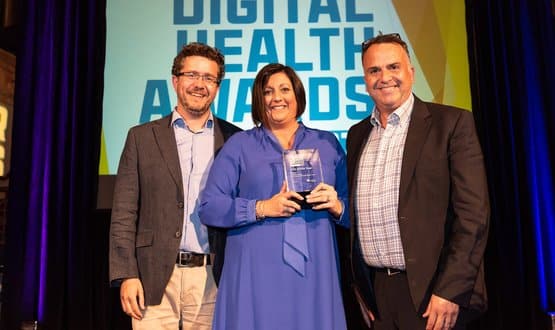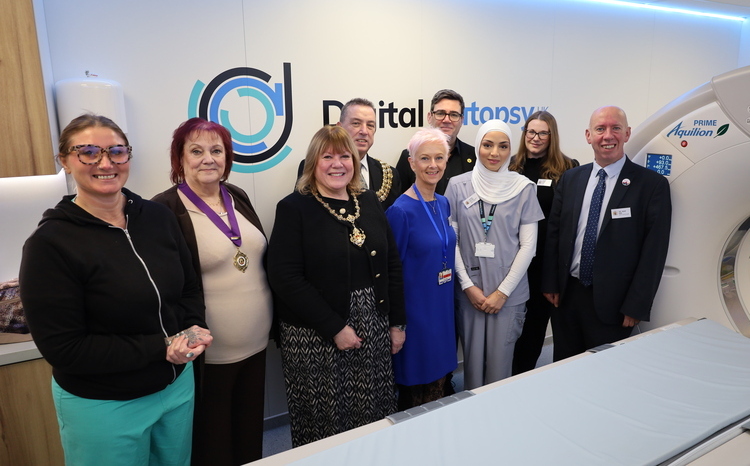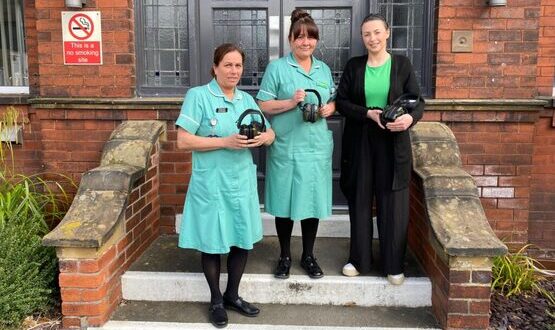2018 Digital Health Award Winner Profile: Phillipa Winter
- 7 September 2018

Phillipa Winter has somewhat of a reputation at Bolton NHS Foundation Trust as someone who can win others over to her way of thinking.
“They say I’m like the Pied Piper,” she jokes.
Winter, who picked up the inaugural Digital Health CIO of the Year Award at July’s Summer Schools, was credited for ringing in some of the biggest changes seen in a generation at Bolton NHS Foundation Trust.
Peer-voted by her colleagues, Winter is said to be someone whose passion for patient care is unmarred by any sense of ego.
It’s hard to argue with this impression when chatting with Winter. Speaking to Digital Health News, the occupational therapist-turned-CCIO-turned-CIO is quick to pay credit to those who have helped her on her path.
“I’m lucky in Bolton because I have a fabulous team and a brilliant CTO who’s really innovative,” she says.
Winter makes no secret of regularly seeking the input of her clinicians for key IT decisions – a trait that has led to her being affably likened to the pipe-toting protagonist of Middle-Age folklore.
“When I go to board, we go as a gang,” she explains.
The CIO says she cherry-picks her team to ensure those standing to be impacted most by a change – whether it be technological or otherwise – get to have their say directly to executives.
“I can stand there as a CIO and tell them about strategy and why I want something, but it’s far more powerful if I get my team and colleagues,” explains Winter.
“That freedom to empower those individuals who are passionate and can demonstrate those qualitative and safety benefits – it’s far more powerful. Then it can’t be denied, can it?”
Back to the beginning
Having pulled stints working in Sainsbury’s, Clarks (where the CIO admits having started her love affair with shoes) and a butcher’s, Winter’s origins story is equal parts humble and poignant.
It was a profound experience as a young girl that put her on the caring path, after seeing her brother seriously injured after a motorcycle accident.
Winter recollects arriving on the scene after her father received a call from a taxi driver, who had witnessed the crash.
“We got there and my brother was bleeding to death at the scene,” says Winter.
“He was saved by the ambulance driver, but they thought they would have to amputate his leg.
Fortunately, quick-thinking doctors were ultimately able to save the limb; Phillipa explains that her brother was one of the first to receive a leg frame, which had just started trials on the NHS.
Yet it was this “profound and awful day” that led Phillipa to decide she wanted to work in healthcare.
“I wanted to do something for other people the way the clinicians helped my brother,” she says.
Winter went to college to study for a BTEC in health studies, but later decided to change course after watching an inspiring demonstration from a visiting occupational therapist (OT).
“It was at that point I thought: ‘I don’t want to do nursing, I want to do that’ – getting people back to health and functioning,” says Winter.
After setting her sights on an occupational therapy degree, Winter applied to study at Liverpool University.
It was only at this point she discovered that she was dyslexic.
“I struggled. I got all my exams apart from English at secondary school, so I had to go back to college and try to get English.”
As she waited to find out whether she would be accepted onto the course, Winter worked as a supervisor at Sainsbury’s.
After impressing senior colleagues with her work, Winter was encouraged to enrol on a management training course.
“I did it as a back-up,” she explains. “I didn’t think I’d got into uni, so I went through the process of retail management.”
Steamrolling barriers
Despite her setbacks – or, perhaps, because of them – Winter regards her pre-university days as some of the most important in her career.
She also encourages those with similar backgrounds not to be discouraged by any perceived shortcomings.
“What I say to other people who come to me who are dyslexic and are a bit humble about it, is don’t be!
“That year in retail was more valuable than anything else and actually made me grow up, go to university and knuckle down to do what I wanted to do,” says Winter, who is part of the first intake at the NHS Digital Academy.
“It doesn’t matter where you come from – it’s those transferable skills and the leadership that are really important.”
Be the sponge
Making yourself heard and surrounding yourself with those you wish to emulate is key to success, according to Winter.
“It’s not all about courses; it’s often about exposure to working with talented people, getting opportunities to work on projects and being open to change, and going the extra mile.
“Look around at talent around you and think about who you would like to be like.
“Look at what jobs they’ve done and what they’ve loved about them, and really learn the lessons from that. Suck it up like a sponge.
“If you want to get somewhere, get up, start networking, start shadowing and try to get your direction.”
A busy outlook
It was Winter’s enthusiasm for project management that eventually landed her the CCIO role at Bolton NHS Foundation Trust. She spent two years in the post before being appointed to the CIO role in July 2016.
One project championed by Winter during that time was the digitisation of Korner, the trust’s note-taking system for occupational therapists.
“You had to record every minute of every day,” she reminisces. “It was a very laborious task.”
“I just thought: ‘This is ridiculous – all this paper and doing things in paper diaries!’”
More recently, Winter exercised her authority as the trust’s IT decision-maker to see through a “very painful” business case that has resulted in the rollout of an electronic patient record (EPR) system.
There is much more to be done before the end of the year. “I need to get my head down!” Winter says with a (perhaps slightly nervous) chuckle.
“We’ve got money invested to do a rollout of unified communications across the entire organisation.
“We’re also going live with e-obs before Christmas and I’m revising the whole of our device strategy, so I think we’re in a really powerful position because we can now see how we’re going to leverage all of that information.
“We’re also doing a proof of concept on patient entertainment and we’re trying to link it to a desktop and to food orders. It’s absolute first of type. It’s a massive piece of work but it’s really innovative.”
If you were to think that Winter has a never-ending supply of gold, you would be wrong – the key is to be imaginative, she suggests.
“You’ve got to be creative: you can’t think ‘that’s too hard’ or ‘I can’t do this’.
“You’ve got to think outside the box, and that’s something everybody’s got to be mindful of.”




